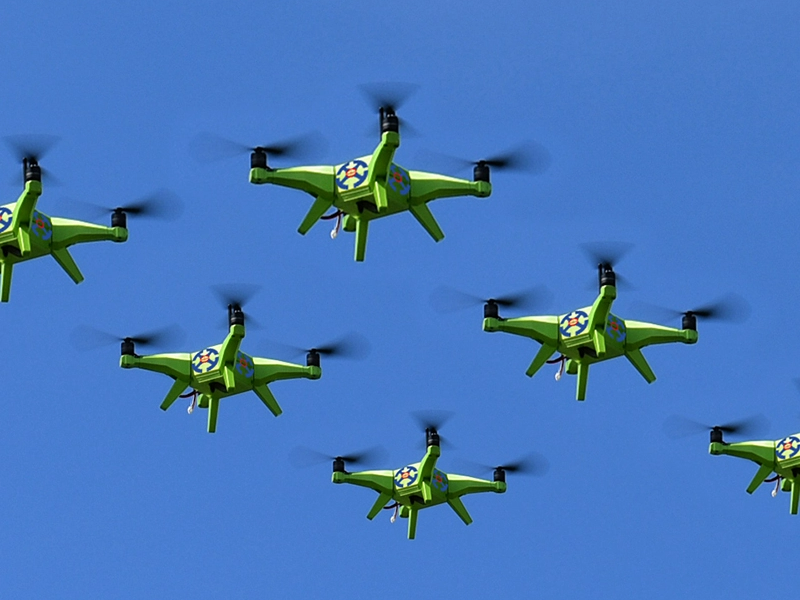Budding Australian drone manufacturers AMSL Aero, Boresight and Grabba Technologies have shared $6.6 million in Defence production contracts following the success of their prototypes under the Advanced Strategic Capabilities Accelerator’s first challenge.
The three local manufacturers have each signed a $2.2 million contract to produce 100 general purpose drones under the next stage of ASCA’s)Sovereign Uncrewed Aerial Systems (UAS) challenge.
The companies, of which only one currently sells drones, had initially been given just $110,000 each to develop a prototype for participation in a fly-off day demonstrator event alongside eight other manufacturers.

New South Wales-based AMSL Aero, Queensland-based Grabba Technologies, and ACT-based Boresight will use the funds to build production capacity, and to develop their drones to a commercial standard by the end of 2023.
ASCA chief Professor Emily Hilder said the challenge had focused on how the accelerator could “use new approaches to accelerate development activities like this and with minimum overhead for engaging SMEs directly.”
Each of the three companies have been contracted to the end of April 2025, of which only Boresight currently sells a small UAS. However, Boresight markets itself as providing threat emulation for counter small-Unmanned Aerial Systems Training.
Boresight’s current UAS product, the Raider Quadcopter, is designed as a disposable training and testing tool, allowing it to be destroyed either by kinetic means (shooting it down) or through radio frequency jamming or similar means. In 2022, the company was awarded a $1.28 million contract from Defence to develop Raider.
AMSL Aero’s focus has been on developing a battery electric and hydrogen fuel cell vertical take-off and landing aircraft, known as Vertiia.
It has received funding from multiple government agencies, including a $3 million Cooperative Research Centres-Projects grant to develop an autonomous version of Vertiia that can fight fires. Other recent grants have come from the Infrastructure department and the Australian Renewable Energy Agency.
Biometric identity authentication and data capture Grabba Technologies had initially participated in the challenge under the subsidiary it acquired in 2019, electronic component manufacturer Crystalaid Manufacturing.
To support this, it has also developed its own mission planning software to program flight profiles and scenarios as well as a swarming capability that allows multiple Raider aerial targets to be controlled simultaneously from a single ground control station.
In an interview with InnovationAus.com, Professor Hilder said the drones are expected to be usable across Defence and civil applications following appropriate government certification.
She said she was pleased with how the first (ASCA) initiative had been run.
“The whole thing was a really great success in terms of demonstrating that we could send a demand signal out to industry, they could respond to that, and now we’re very confident that we’ll have some sovereign options in this space by early next year,” Professor Hilder said.
In July, Defence spent more than $100 million on 110 small uncrewed aerial systems that will be delivered by German firm Quantum-Systems and ACT-based SYPAQ Systems, which was unsuccessful in the ASCA UAS challenge.
Do you know more? Contact James Riley via Email.

